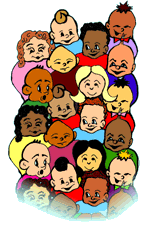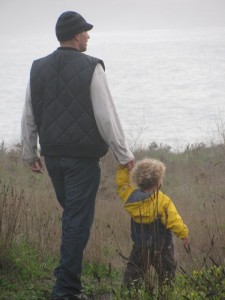by Rona | Mar 19, 2021 | KPFA, Podcasts, Thoughts for the Day
In the US, Black and other ethnic minority groups are hit the hardest by Covid-19, creating a renewed focus on racism in healthcare. There are so many false beliefs that many doctors and other healthcare providers still work from about Black people, such as their skin being thicker, their blood coagulating differently, and that they feel less pain. When doctors are blind to their racist beliefs and attitudes it can lead to less effective treatments, more pain, humiliation, and even death. It’s time that doctors, medical students, and other health care professionals take anti-racist study seriously and get support to see bias in themselves and in others.
On 1/18/21 we had a conversation on About Health (94.1FM KPFA.org) to discuss racism in medical care. We heard about personal experiences of racism and some of the history that has added to the mistrust of doctors based on racist practices. You can hear that show here: https://www.nurserona.com/racism-in-medical-care/ It seemed important to me to do a follow up show to continue the conversation.
What are ways to uproot racism in medicine?
Listen now to About Health on KPFA.org—94.1FM (3/22/21)
 Dr. Jeff Ritterman is a retired cardiologist from Kaiser Richmond where he worked for 29 years. He was also a Professor and Clinical Coordinator for the Physician Assistant Program at Touro University and worked for three years doing Adult Primary Care at Lifelong Medical in San Pablo. He is on the Board of Directors of San Francisco Physicians for Social Responsibility and served on the Richmond City Council when they introduced the first municipal Soda Tax. In the 1980s he helped start the Salvador Medical Relief Fund and the Committee for Health Rights in Central America. He personally delivered medical supplies to Salvador Refugees in Honduras and Costa Rica. In the 1990s he started the Southern Africa Medical Aid Fund and delivered medical supplies to the African National Congress’s Clinic in Lusaka, Zambia. He has helped start two Racial Equity Book Clubs, one with Kaiser Oakland and the other with San Francisco Physicians for Social Responsibility. He is the author of two recent papers on combating Medical Racism.You can read one of them here: http://www.thepermanentejournal.org/issues/2021/spring/7609-the-ally-book-club-a-tool-for-challenging-racism.html
Dr. Jeff Ritterman is a retired cardiologist from Kaiser Richmond where he worked for 29 years. He was also a Professor and Clinical Coordinator for the Physician Assistant Program at Touro University and worked for three years doing Adult Primary Care at Lifelong Medical in San Pablo. He is on the Board of Directors of San Francisco Physicians for Social Responsibility and served on the Richmond City Council when they introduced the first municipal Soda Tax. In the 1980s he helped start the Salvador Medical Relief Fund and the Committee for Health Rights in Central America. He personally delivered medical supplies to Salvador Refugees in Honduras and Costa Rica. In the 1990s he started the Southern Africa Medical Aid Fund and delivered medical supplies to the African National Congress’s Clinic in Lusaka, Zambia. He has helped start two Racial Equity Book Clubs, one with Kaiser Oakland and the other with San Francisco Physicians for Social Responsibility. He is the author of two recent papers on combating Medical Racism.You can read one of them here: http://www.thepermanentejournal.org/issues/2021/spring/7609-the-ally-book-club-a-tool-for-challenging-racism.html

Dr. Nadia Gaber is a postdoctoral fellow in the Program on Reproductive Health and the Environment, studying the influence of the chemical industry on the science and regulation of toxic chemicals. She received her PhD in medical anthropology and is obtaining her MD at UCSF with support from the NIH Medical Scientist Training Program. Her research in Detroit and Flint looked at the politics of urban health and safety in the U.S. through the lens of water. She is continuing to develop that research in a book project called Life After Water that blends ethnography, grassroots epidemiology and critical race theory. She is a member of the new UCSF REPAIR Project, a three-year initiative to combat anti-Black racism in the health sciences and has organized off-campus with groups like Critical Resistance and the Arab Resource and Organizing Center.
Some References From Dr. Ritterman
1. Washington HA. Medical apartheid. New York, NY: Anchor Books; 2008.
2. Owens DC. Medical bondage. Athens, GA: University of Georgia Press; 2017.
3. Diangelo R. White fragility. Boston, MA: Beacon Press; 2018.
4. Kendi IX. How to be an antiracist. New York, NY: Random House; 2019.
5. Metzl JM. Dying of whiteness. New York, NY: Basic Books; 2019.
6. Hoffman KM, Trawalter S, Axt JR, Oliver MN. Racial bias in pain assessment and treatment recommendations, and false beliefs about biological differences between blacks and whites. Proc Natl Acad Sci USA 2016 April;113:4296-301. DOI: https://doi.org/10.1073/pnas 15160471131073 Accessed August 20, 2020.
by Rona | Jul 30, 2020 | Announcements, Thoughts for the Day
 There is so much to consider during this pandemic as parents and grandparents do the best they can to keep their relationships with their children healthy and loving. There is no “right way” to get through this time in our lives…but if we can put our children at the center of our decisions, then we will nurture and keep safe the next generation. And in order to do this, parents MUST take care of themselves with enough sleep (your laughing now) healthy food, a little time each day to move your body, and deep gratitude for being alive and building your capacity to thrive in the face of adversity.
There is so much to consider during this pandemic as parents and grandparents do the best they can to keep their relationships with their children healthy and loving. There is no “right way” to get through this time in our lives…but if we can put our children at the center of our decisions, then we will nurture and keep safe the next generation. And in order to do this, parents MUST take care of themselves with enough sleep (your laughing now) healthy food, a little time each day to move your body, and deep gratitude for being alive and building your capacity to thrive in the face of adversity.
Many different events, thoughts, and emotions can trigger your yelling and frustration, but they are all modified or intensified by three unique and important factors: Your temperament, your child’s temperament, and how they fit together.
To learn more check out the links below:
-To learn more and to get a temperament assessment for a child 4months to 5years go to www.preventiveoz.org.
-You can also read the classic book, “Raising Your Spirited Child,” by Mary Sheedy Kurcinka, or my book “Is That Me Yelling? A Parent’s Guide to Getting Your Kids to Cooperate Without Losing Your Cool.”
by Rona | May 6, 2015 | Is That Me Yelling?, Thoughts for the Day
 “When we do our best to treat our children, others, and ourselves with kindness and respect—even with our imperfections–there is a ripple effect. A shift takes place in ourselves, in our children, in the people we interact with every day. When we heal our wounds with courage and honesty, we can use our energy for our benefit and the benefit of others. One person—like you or me—can have a significant impact on the violence, greed, suffering, and lack of compassion around us all. If more parents model respectful communication and empathy, then the next generation will have a better chance to create a more peaceful world.
“When we do our best to treat our children, others, and ourselves with kindness and respect—even with our imperfections–there is a ripple effect. A shift takes place in ourselves, in our children, in the people we interact with every day. When we heal our wounds with courage and honesty, we can use our energy for our benefit and the benefit of others. One person—like you or me—can have a significant impact on the violence, greed, suffering, and lack of compassion around us all. If more parents model respectful communication and empathy, then the next generation will have a better chance to create a more peaceful world.
Consider these questions every day:
-
What will I discover today that brings meaning to my life?
-
What will I learn from my children, and what will they learn from me?
-
How can I offer love, comfort, or peace to someone?”
—Rona Renner, “Is That Me Yelling?” (page 200)

by Rona | Jan 6, 2015 | Thoughts for the Day

During the weeks after my recent hip replacement surgery, as my body started the healing process, I had time to go inward and reflect on many things. I thought about my health, my work, and what the future may hold. I felt deep gratitude for my family and the healing we have all done over the years. I reflected on how grateful I am to the parents who I work with in classes and individually. I learn so much from each person as I am reminded of the love and challenges all parents face in raising children.
As you welcome 2015, take time to reflect on your life—what healing is needed? How can you come into alignment with your goals and purpose?
Think of the gifts you bring to the people in your life, and how you can feel more connected to the people you love or care for.
This is a time for healing. Start with yourself. Does your body need more movement, different food, affection, or time alone? Consider making a commitment to carve out time alone to think about your needs and develop a deeper sense of compassion for yourself as well as others.
Consider the children in your life, and think about their daily experience.
- Do they have opportunities to contribute to the family or their community and express their kindness and curiosity?
- Do they get out into nature enough with time to explore?
- Are they too stressed out by school and homework?
- Are you and your family able to disconnect from electronics and enjoy each other’s company?
- What changes do you want to make at home?
- Do you want to have more family dinners or fewer weekend commitments?
- What is working well? What needs some attention and shifting?
We’re all different, and healing is a process that takes time and intention. I noticed over these past weeks that when I got a good night’s sleep, my incision and pain was much better the next day. It’s been helpful for me to see how important rest and loving care is. When I slow down, I can feel and see more, not less. Slowing down is essential to healing a wound and also to mending relationships and feeling restored.Healing our world
Many people are reflecting on the need for peace in our communities, our country, and our world. Acknowledging and healing the disparities that exist based on race, class, and poverty must be attended to if we are to have any possibility of peace. So do what you can and bring your courage, kindness, and generosity into the world.
by Rona | Nov 1, 2014 | Is That Me Yelling?, Thoughts for the Day

When I hear the word curiosity, I can’t help but think of Curious George. But there are other meanings worth considering.
Curiosity is a strong desire to know or learn something. When you are curious you are interested in discovering something new or understanding something that’s puzzling. This attitude can come in handy when raising children because they surprise and perplex us on a regular basis.
“Why is he waking up at night all of a sudden? He’s always been a good sleeper.”
“How did she figure out what the password is on my computer? She’s only eight years old.”
If you’re stressed and rushed, your first reaction to some of your child’s behavior may be to yell. If you slow down and calm yourself, you may develop an attitude of curiosity and discover more about what makes your child tick.
Take the time to approach a new situation, disagreement, or challenge from a place of curiosity!
When you are able to notice and then manage your strong reactions of frustration, anger, fear, or disappointment, you have an opportunity to connect and engage with a child. This is a powerful step in resolving problems and preventing power struggles.
Here is an example.
Jada, a 6 year old who likes to take her time in the morning, frequently fusses when it’s time to walk to school. She wants to play one more game, or she searches for that special object, like a pencil or toy that she must have to take to school. Her mother Marla is usually in a rush, and gets easily frustrated when Jada isn’t ready on time. Marla is in the habit of yelling, and the more she yells the more Jada insists that she needs, “One more thing.”
When Marla tries the curiosity approach, she finds that it takes less time than she feared. As Jada stalls and says she can’t go to school without that special pencil Marla asks her to sit down with her for a minute. In a calm manner she asks her daughter a few questions, and then she listens. “Honey, do you have anything important going on at school today? When Jada says no, mom asks, “Tell me a little bit about your pencil. What makes it so special?” Jada says, without hesitation, “When I have to write my numbers I get scared that I’ll make the 3 and 5 backwards. With my special pencil I’m less worried cause the eraser is really good.”
Marla gives Jada a hug and reminds her that many children write numbers backwards, and that’s part of learning. She tells her daughter how she used to do the same thing. Marla makes a mental note to work with Jada on her numbers to help build her confidence. She also reminds her daughter that today is art day, something Jada loves.
Taking time to connect and find out more about what your child is feeling and thinking will often provide a clearer picture of your child’s experience. When you don’t have time for a morning sit down, remember to connect with curiosity later in the day.
To learn more about how to lower your intensity and calm yourself so you can respond instead of react, check out my book, Is That Me Yelling?
 With gratitude and curiosity about how things are working for you.
With gratitude and curiosity about how things are working for you.
Rona (more…)
by Rona | Aug 2, 2014 | Thoughts for the Day
In my book, “Is That Me Yelling?” I touch on the issue of sleep deprivation as a common trigger for parental yelling during the day, or at 3AM, when you’re not able to be rational or calm.
There are many consequences of too little sleep, such as lack of focus, irritability, poor emotional control, and an overall foggy feeling. Sleep deprivation can also set you up for a lower resistance to fighting off colds and other illnesses. Parents and children frequently feel stressed out, and a good nights sleep is an important element in stress reduction.

Many parents report that when their child gets into the habit of waking up in the middle of the night, they lose it, and start to yell. Yelling rarely helps, and will often make matters worse since a child may get worried or upset, motivating her to want more comfort.
Most couples share the burden of getting up at night to comfort a crying baby or to walk a seven year old back to her bed after her loud howling woke you and perhaps the neighbors as well. And if you’re a single parent, your sanity depends on creative solutions to getting a good night sleep.
What has worked for you, to help your child learn how to put herself back to sleep? Here are some solutions that parents have used. What would you add?
- Walk your child back to bed and help her learn ways to soothe herself back to sleep. Stay calm and in control of your emotions—and with a consistent message over time your child may learn that he can go back to sleep without a parent there.
- Give-in to his desire, and let him sleep with you “just this one night.”
- Put a sleeping bag or mat (not too comfy) on the floor in your room and tell your child she can come and sleep there in the middle of the night, as long as she doesn’t wake you up.
- Teach your child how to do slow easy breathing (maybe with a stuffed animal on her belly) or the body-scan, so she can soothe herself back to sleep. Try an eye pillow that has a soothing lavender scent.
- Get a dog to sleep with your child.
- Try a sound machine. For some kids it does the trick when they stir at night. You may find it useful for trips as well.
- Revisit your child’s bedtime routine. Work to teach your child how to fall asleep at bedtime, on his own—without a parent sitting there until he is asleep. If he gets use to falling asleep without you there, he will be more likely to fall back to sleep without you as well.
- Make sure he has had a good dinner or a bed time healthy snack, so a hungry belly isn’t the cause of waking.
- Talk to your child about her school day and listen to any fears or concerns she has about her school performance or friendships. Worries can keep a child from falling back to sleep. Reflect on the amount of one-on-one time you have with your child.
- Engage your child in a conversation about what would help him get back to sleep without waking you. Experiment with the different ideas if they make sense to you. Let him know that you need your sleep and you don’t want to be woken up at night. Tell him that you will be a much nicer person during the day if you sleep well.
- Do an inventory on the level of stress in the house in the evening. If things are tense between family members, it can impact healthy sleep.
- Don’t have TV or other electronics in your child’s room. Too much visual stimulation, or scary movies, can cause sleep waking. Also the bedroom should be on the cool side, and most people sleep much better in the dark, with the lights out and good curtains to keep the sun from shining into the room in the early morning. Some children do better with a night light, so you’ll need to figure out what’s best.
- Talk to your health care provider to rule out any issues such as sleep apnea or snoring.
Children go through different stages of development. At some stages they become more aware of the world around them, and because of that, they may not feel safe or secure. Many children become more aware and interested in death and dying between the ages of 7-9, and they may temporarily need extra comfort and connection. Behavior has meaning, and at the same time habits get formed easily, so think it though before you bring your child into your bed at night. It’s a personal decision, so decide if that’s what you (and your partner or spouse) want, and if that’s what your child needs. Each family is unique, and so what works for you may be very different than what works for your friend or sister.

 Dr. Jeff Ritterman is a retired cardiologist from Kaiser Richmond where he worked for 29 years. He was also a Professor and Clinical Coordinator for the Physician Assistant Program at Touro University and worked for three years doing Adult Primary Care at Lifelong Medical in San Pablo. He is on the Board of Directors of San Francisco Physicians for Social Responsibility and served on the Richmond City Council when they introduced the first municipal Soda Tax. In the 1980s he helped start the Salvador Medical Relief Fund and the Committee for Health Rights in Central America. He personally delivered medical supplies to Salvador Refugees in Honduras and Costa Rica. In the 1990s he started the Southern Africa Medical Aid Fund and delivered medical supplies to the African National Congress’s Clinic in Lusaka, Zambia. He has helped start two Racial Equity Book Clubs, one with Kaiser Oakland and the other with San Francisco Physicians for Social Responsibility. He is the author of two recent papers on combating Medical Racism.You can read one of them here: http://www.thepermanentejournal.org/issues/2021/spring/7609-the-ally-book-club-a-tool-for-challenging-racism.html
Dr. Jeff Ritterman is a retired cardiologist from Kaiser Richmond where he worked for 29 years. He was also a Professor and Clinical Coordinator for the Physician Assistant Program at Touro University and worked for three years doing Adult Primary Care at Lifelong Medical in San Pablo. He is on the Board of Directors of San Francisco Physicians for Social Responsibility and served on the Richmond City Council when they introduced the first municipal Soda Tax. In the 1980s he helped start the Salvador Medical Relief Fund and the Committee for Health Rights in Central America. He personally delivered medical supplies to Salvador Refugees in Honduras and Costa Rica. In the 1990s he started the Southern Africa Medical Aid Fund and delivered medical supplies to the African National Congress’s Clinic in Lusaka, Zambia. He has helped start two Racial Equity Book Clubs, one with Kaiser Oakland and the other with San Francisco Physicians for Social Responsibility. He is the author of two recent papers on combating Medical Racism.You can read one of them here: http://www.thepermanentejournal.org/issues/2021/spring/7609-the-ally-book-club-a-tool-for-challenging-racism.html

 There is so much to consider during this pandemic as parents and grandparents do the best they can to keep their relationships with their children healthy and loving. There is no “right way” to get through this time in our lives…but if we can put our children at the center of our decisions, then we will nurture and keep safe the next generation. And in order to do this, parents MUST take care of themselves with enough sleep (your laughing now) healthy food, a little time each day to move your body, and deep gratitude for being alive and building your capacity to thrive in the face of adversity.
There is so much to consider during this pandemic as parents and grandparents do the best they can to keep their relationships with their children healthy and loving. There is no “right way” to get through this time in our lives…but if we can put our children at the center of our decisions, then we will nurture and keep safe the next generation. And in order to do this, parents MUST take care of themselves with enough sleep (your laughing now) healthy food, a little time each day to move your body, and deep gratitude for being alive and building your capacity to thrive in the face of adversity.




 With gratitude and curiosity about how things are working for you.
With gratitude and curiosity about how things are working for you.